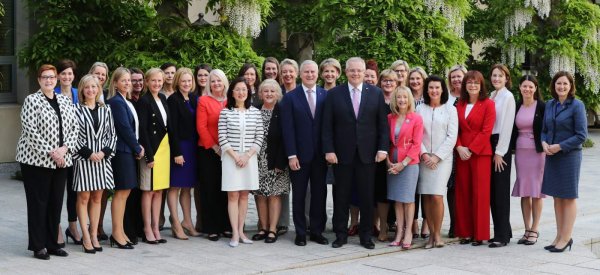In the era of coronavirus, we need an institutionalised gender lens in Parliament more than ever before. Policy decisions are being taken without considering the gender implications – for example, the implications for women’s safety of isolation at home or of employers requisitioning our homes as their work spaces.
Why is it then, that Australian parliaments do not have, like parliaments in other democracies, standing committees or other specialised bodies to ensure that legislation promotes gender equality rather than undermining it?
Over the past 20 years, there has been a proliferation in the world outside Australia of parliamentary bodies with a gender equality mandate.
Over the past 20 years, there has been a proliferation in the world outside Australia of parliamentary bodies with a gender equality mandate. According to the latest data from the Inter-Parliamentary Union (IPU), which collects data on standing committees or commissions and women’s caucuses, 89 parliaments have at least one specialised body on gender equality.
Another type of specialised body is the all-party parliamentary group, usually with a non-government organisation providing its secretariat.

Women now make up 37% of all Australian parliamentarians.
For example, 65 parliaments, including Australia, have parliamentary groups on population and development. These groups are mainly focused on preserving overseas aid commitments to family planning, although they can also promote sexual and reproductive health rights. They were established in the aftermath of the 1994 International Conference on Population and Development in Cairo, to bring pressure on donor governments to meet their Cairo commitments.
The Australian Parliamentary Group on Population and Development played an important role in the RU-486 intervention.
The Australian Parliamentary Group on Population and Development played an important role in the RU-486 intervention, when cross-party women Senators succeeded in overturning the right of ministerial veto. However, its main focus is on the region. It cannot take the place of a Standing Committee with a mandate to apply a gender lens to domestic legislative and policy proposals, particularly economic ones.
Specialised parliamentary bodies with a mandate to promote gender equality are of particular importance in providing a focal point and legitimacy for debate on the gender implications of policy. This will again be of crucial significance in debate over post-Covid-19 economic reconstruction and proposals for tax and industrial relations reform. Without it, it is all too likely that changes in the tax and industrial relations systems will increase rather than decreasing gender gaps.

Swedish Parliament.
The attitude seems to be that, unlike countries such as Canada, Sweden or the UK, Australia does not need specialised parliamentary bodies to promote gender equality. It is perhaps expected that this is a job for women parliamentarians, now that they make up 37% of parliamentarians around Australia.
This overlooks the fact that in most countries it is precisely after an influx of women into parliament that a specialised body is established. A specialised body with a mandate to promote gender equality takes the pressure off women parliamentarians to do something that should be the responsibility of parliament as a whole.
It also provides a safe space for male champions of gender equality. Most importantly, with adequate technical support, it can improve the legislative process by ensuring that proposals do not have unanticipated and unintended results.
The International Network for Research on Gender-Focused Parliamentary Bodies (GenParlNet) promotes research into how such bodies come about, what makes them effective and how they can be sustained. Improving the quality of representation by encouraging engagement of diverse community groups is just one expectation. Another is more effective oversight of how international commitments on gender equality are being implemented and reported on by government.
Improving the quality of representation by encouraging engagement of diverse community groups is just one expectation.
These functions – of promoting community engagement, gender-sensitive legislative review and executive scrutiny – are not necessarily performed equally well by the different types of specialised parliamentary body. New research casts light on these questions and provides evidence for institutional design and redesign.
If Australia is not to slip further backwards in the gender equality stakes in the post-COVID-19 era, it needs to strengthen the role of parliament in preventing this. It’s time for Australia to catch up with those 89 parliaments that have institutionalised a gender remit in a standing committee or other body. As the Prime Minister says, we should all be in this together.




